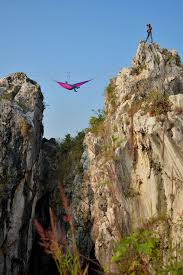


The Citatah karst area in West Bandung Regency, West Java, has once again become a public topic of discussion. Illegal limestone mining in this area has sparked serious controversy, not only concerning the environment but also regarding weak law enforcement and natural resource management in the region. This phenomenon highlights a classic dilemma: economic needs versus environmental preservation, which remains a major challenge in West Java.
Citatah is a karst landscape with strategic geological, ecological, and cultural value. In addition to being a source of groundwater reserves, the area harbors a rich biodiversity and historical sites, including ancient human fossils and other archaeological remains. Unfortunately, this potential continues to be eroded by uncontrolled limestone mining activities. Many miners operate without official permits, even in areas designated as geological conservation zones.
In recent years, limestone mining in Citatah has become increasingly widespread. This activity is carried out to meet the raw material needs of the cement and construction industries, especially in urban areas like Bandung and Jakarta. Ironically, much of the mining is conducted illegally. Areas that should be protected as geological nature reserves have instead become fields for exploitation.
Law enforcement efforts by government officials are often undertaken, but they are only temporary. After the authorities leave the site, mining resumes, employing the same modus operandi. This situation demonstrates that enforcement without long-term solutions only results in a repeating cycle. The key actors behind the distribution of mining products are rarely touched, while field miners are the ones most often sanctioned.
From an environmental perspective, the impact of limestone mining in Citatah is devastating. The karst hills, once iconic to the West Java landscape, have now largely disappeared due to dredging. In addition to destroying the natural beauty, this mining threatens the balance of the karst ecosystem, which serves as a water catchment area. If this continues, the clean water crisis in the surrounding area will not be a future threat but an already real reality.
This situation is further complicated by the interconnectedness of illegal mining in Citatah with socio-economic problems for the local community. Many local residents are directly involved as mine workers due to the lack of other available employment opportunities. For them, working as limestone miners is the only way to meet their daily needs. As a result, when the government enforces regulations, tensions often arise with residents because their livelihoods are threatened.
This situation demands a more comprehensive solution than simply raiding mines. The government needs to design policies that are not solely focused on enforcement but also on creating alternative economic opportunities for the surrounding community. One way is to develop environmentally-based empowerment programs, such as geological ecotourism, community-based conservation area management, and more sustainable skills training.
The government also needs to immediately clarify the zoning of karst areas and strengthen regulations related to their protection. Stricter oversight of mining activities must be implemented, including taking action against major actors involved in illegal limestone distribution networks. Law enforcement must not stop at the field level.
The Citatah area holds significant value that goes far beyond mere limestone piles. It is a geological, ecosystem, and cultural heritage that must be preserved. If natural resource management focuses solely on short-term economic gain, the resulting ecological damage will be permanent and difficult to reverse.
The government already has several regulations to address the issue of illegal mining in Citatah. One legal umbrella is the designation of Citatah as part of the Karst Landscape Area (KBAK), as stipulated in Minister of Energy and Mineral Resources Regulation Number 17 of 2012 concerning the Protection and Management of Karst Areas. This regulation emphasizes that areas with high ecological function and scientific value must be preserved and must not be exploited indiscriminately, including for mining.
From a law enforcement perspective, a joint force consisting of the West Bandung Police, Public Order Agency (Satpol PP), and the Environmental Agency frequently conducts enforcement operations at illegal mining sites. Unfortunately, the implementation of this policy is far from optimal. Field supervision is weak, and legal sanctions often do not target the main actors behind illegal mining operations. Typically, only small-scale miners are caught in the act.